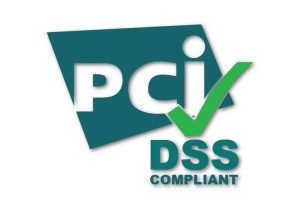Compliance often seems like an added business cost. You need to meet certain requirements, not to mention, hire the necessary staff members to meet them. However, it is more costly to be non-compliant than to cover the continuous cost of compliance. For your business to handle credit card transactions, you need to be PCI DSS (Payment Card Industry Data Security Standard) compliant. While the compliance process is complex in a way, it can be a walk in the park as long as you know what to look out for.
What Is PCI Compliance?
Simply put, PCI compliance can be achieved by following a set of standards that are designed to ensure businesses that accept, process, transmit or store credit card data do so in a secure way. The regulation is governed by the PCI Security Standard Council (SSC), which is an independent body comprising of the major credit card brands- MasterCard, Discover, Visa, American Express, and JCB.
The standard was developed in response to the rising threat of fraud in the payment industry. Threat actors would access credit card data and end up stealing cash or even engaging in identity theft cases. It provided a standardised approach to security for businesses to follow.

Why PCI Compliance Is Important
Data security is meant to have the interests of all stakeholders at heart. Clients can rest assured that their data is safe with you, investors can rely on the reputation of your business, business partners can depend on your business’ viability and employees can rely on a stable income source. A data breach simply brings some tension with it.
Customers lose trust in your business, ruining your reputation. The chances are that you might lose customers in a world where 70% of customers would abandon a brand that has undergone a data breach. Investors also lose faith in your business. As for potential investors, it might be tough to urge them into doing business with you. In case your business fails, you might also have to lose business partners and employees.
Luckily, PCI compliance can help you evade all these consequences by keeping your credit card and cardholder data safe. By complying with its requirements, you can keep all stakeholders happy. Since choosing the right tools and strategies for a great security posture can be confusing, PCI DSS helps to point businesses in the right direction.
How To Prepare For PCI Compliance As A Startup
Ideally, you need to meet all the necessary PCI DSS requirements. There are 281 requirements and 12 objectives. While some of them outline the different tools you can use to protect your credit card data, others outline the different policies that you need to have in place.
In case you allow vendors access to your payment data, you need to ensure that they are compliant too. Since a breach on their side could mean a breach of your business as well, the PCI SSC has made working with compliant vendors a compulsory requirement. However, the cost of compliance, as well as the strictness you need to follow, will depend on the level your business belongs to.
The Different PCI Compliance Levels
PCI DSS has four compliance levels, with level 1 being the strictest and level 4 being fairly easy to achieve. Your business is in level 1 of PCI compliance is it handles anywhere over 6 million annual credit card transactions. It will belong to level two if your handle 1-6 million annual credit card transactions.
For businesses that handle 20,000 to 1 million credit card transactions, they will have to follow level 3 requirements. Lastly, you belong to level 4 of PCI compliance if your business processes less than 20,000 annual credit card transactions. However, if your business gets breached, you automatically have to comply with level 1 requirements, which are not only strict but also the most expensive to meet.
How Much Do You Need To Budget For PCI Compliance?
It can be tough to generalise the amount you need to pay for PCI compliance, but you can use a few factors to determine how much you will need to spend. Ideally, you should concentrate on the number of transactions that you handle per year. The more the transactions, the higher you belong on the PCI compliance levels, requiring you to spend more cash.
Also, the number of employees you have will influence the cost of compliance. A huge workforce means that the risk your data faces is high. Lastly, you should concentrate on the data environment, both physical and virtual. A diverse data environment means that you need to spend more on security controls to ensure a complete approach to compliance.
Security should always be a priority for startups, and PCI compliance simply looks to ensure this. In turn, all stakeholders walk away with smiles on their faces. Concentrate on PCI compliance to improve the security of the credit card data your startup handles.



